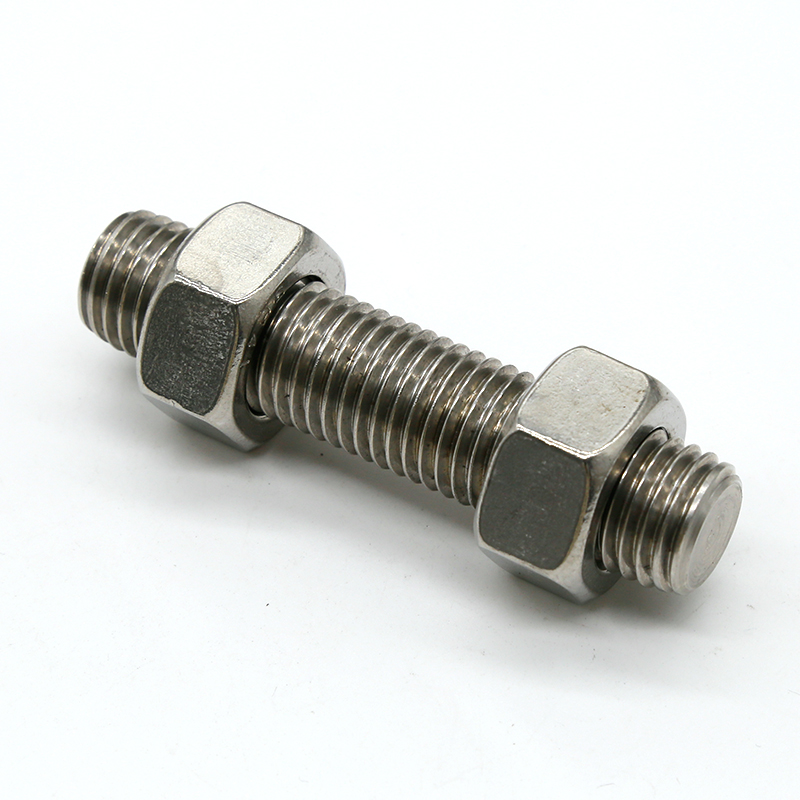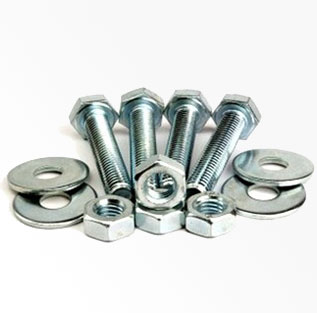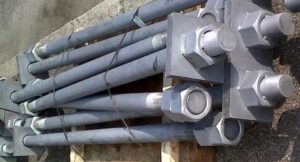Various Types of Standards of Threaded Rod Fasteners?
Stud bolts are threaded rods without heads designed to be used in conjunction with two nuts to create a bolted connection. They also adhere to specific standards ensuring their quality, compatibility, and reliability. Here are some types of stud bolt standards:
Common Types of Stud Bolt Standards:
1. ASTM (American Society for Testing and Materials)
- ASTM A193: Standard specification for alloy-steel and stainless steel bolting materials for high-temperature service.
- ASTM A320: Covers alloy-steel and stainless steel bolting materials for low-temperature service.
- ASTM A453: Specifications for high-temperature bolting materials, with corrosion resistance properties.
2. ASME (American Society of Mechanical Engineers)
- ASME B18.31.3: Covers dimensional requirements for metric hex flange bolts and screws.
- ASME B16.5: Standard for pipe flanges and flanged fittings.
3. DIN (Deutsches Institut für Normung – German Institute for Standardization
- DIN 976: Specifies metric threads, diameters, and lengths of fully threaded rods (which can be used as stud bolts).
- DIN 939: Covers stud bolts with a length of engagement equal to about 1.25 times the thread diameter.
4. BS (British Standards)
- BS 4882: Covers specifications for metric studs and studs for special purposes.
- BS 4882-2: Part 2 of BS 4882 specifies specifications for self-coloured and zinc-plated studs.
Factors Influencing Choice of Standard
The selection of a specific stud bolt standard depends on various factors:
- Material and Coating: Standards vary based on the materials used, such as steel, stainless steel, or alloys, and coatings for corrosion resistance.
- Temperature and Pressure Requirements: Different standards accommodate various temperature and pressure ranges.
- Application Needs: Stud bolts are selected based on load-bearing capacities, environmental conditions, and specific fastening requirements.
Importance of Adherence to Standards
Adhering to established stud bolt standards ensures compatibility, reliability, and performance in various applications. It guarantees that these components meet specified dimensional, mechanical, and material requirements, ensuring safety and reliability across diverse industries.



Conclusion
Stud bolts are fundamental components in creating strong and secure connections. Understanding the different types of stud bolt standards is crucial for selecting the appropriate stud bolt for specific applications. Adherence to these standards ensures that these components significantly contribute to the safety, reliability, and functionality of assemblies and structures.
Bhansali Metalloys Inc is one of the leading Manufacturer, Exporters, and Suppliers of High Quality Stud Bolts all over in India. We are Manufacturer, Supplier and Dealer of various types of Fasteners such as Bolts, Nuts, Threaded Rods, Screws, Washers and many more. We are Stud Bolts Manufacturer in India. These Stud Bolts are available in different grades and materials. We are Stud Bolts Manufacturer, Supplier, Dealer, and Exporter in India. We are Stud Bolts Supplier in India. Contact Us +919152160158 or email to info@bhansalimetalloysinc.com for Stud Bolts price list.
For our full list of products that we offer check out our website here. Be sure to join the conversation in our Facebook, Instagram, Twitter, LinkedIn Group.
Each Stainless Steel Stud Bolts is otherwise designed based on the characteristics of the applying and additionally the pressure. Consequently, different industries use different Stud Bolts. We also produce customized Stud Bolts Products at our factory as per our client’s requirements. For any types of Stud Bolts Price List Call on +91 9152160158 or drop an Email to info@bhansalimetalloysinc.com | exportbmi32@gmail.com
We Export Across the Globe
Exports in Asia Afghanistan, Armenia, Azerbaijan, Bangladesh, Bhutan, Brunei Darussalam, Cambodia, China, Georgia, Hong Kong, India, Indonesia, Japan, Kazakhstan, South Korea, Kyrgyzstan, Laos, Macao, Malaysia, Maldives, Mongolia, Myanmar (ex-Burma), Nepal, Pakistan, Phillipines, Singapore, Sri Lanka (ex-Ceilan), Taiwan, Tajikistan, Thailand, Timor Leste (West), Turkmenistan, Uzbekistan, Vietnam.
Export to Africa Burundi, Comoros, Djibouti, Eritrea, Ethiopia, Kenya, Madagascar, Malawi, Mauritius, Mayotte, Mozambique, Reunion, Rwanda, Seychelles, Somalia, Tanzania, United Republic of Uganda, Zambia, Zimbabwe, Angola, Cameroon, Central African Republic, Chad, Congo (Brazzaville), Congo, Democratic Republic of the Equatorial Guinea, Gabon, Sao Tome and Principe, Algeria, Egypt, Libyan Arab Jamahiriya, Morroco, South Sudan, Sudan, Tunisia, Western Sahara, Botswana, Lesotho, Namibia, South Africa, Swaziland, Benin, Burkina Faso, Cape Verde, Cote d’Ivoire (Ivory Coast), Gambia, Ghana, Guinea, Guinea-Bissau, Liberia, Mali, Mauritania, Niger, Nigeria, Saint Helena, Senegal, Sierra Leone, Togo.
Export to America Anguilla, Antigua and Barbuda, Aruba, Bahamas, Barbados, Bonaire, Saint Eustatius and Saba, British Virgin Islands, Cayman Islands, Cuba, Curaçao, Dominica, Dominican Republic, Grenada, Guadeloupe, Haiti, Jamaica, Martinique, Monserrat, Puerto Rico, Saint-Barthélemy, St. Kitts and Nevis, Saint Lucia, Saint Martin, Saint Vincent and the Grenadines, Sint Maarten, Trinidad and Tobago, Turks and Caicos Islands, Virgin Islands (US), Belize, Costa Rica, El Salvador, Guatemala, Honduras, Mexico, Nicaragua, Panama, Argentina, Bolivia, Brazil, Chile, Colombia, Ecuador, Falkland Islands (Malvinas), French Guiana, Guyana, Paraguay, Peru, Suriname, Uruguay, Venezuela, Bermuda, Canada, Greenland, Saint Pierre and Miquelon, United States.
Export to the Middle East Bahrain, Iraq, Iran, Israel, Jordan, Kuwait, Lebanon, Oman, Palestine, Qatar, Saudi Arabia, Syria, United Arab Emirates, Yemen.




